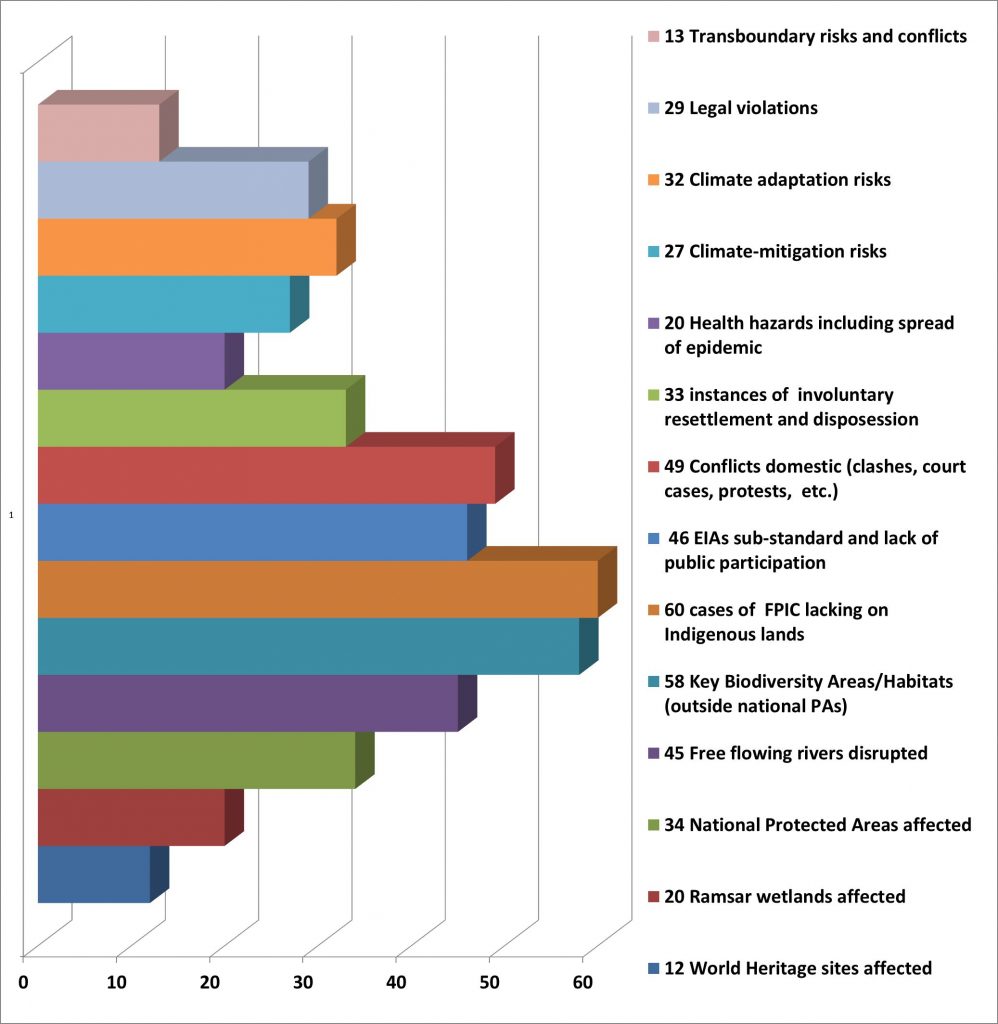
Global Civil Society Call on Chinese Authorities to Ensure that COVID-19 Financial Relief is Not Targeted to Harmful Projects along the Belt and Road.
On April 29, 2020, the Rivers without Boundaries along with other 260 civil society groups across the world called on the Chinese government to ensure that COVID-19 related financial relief for struggling Belt and Road projects flows only to high quality investments satisfying specific criteria, and avoid bailing out projects already mired in environmental, social, biodiversity, climate, or financial risks prior to the onset of COVID-19.
In February 2020, China’s Ministry of Commerce and the China Development Bank (CDB) jointly issued a notice creating a mechanism for directing finance to Belt and Road projects that have been impacted by the COVID-19 pandemic. The announcement instructed local commerce departments and centrally state-owned enterprises to collect information on overseas projects impacted by the outbreak, and pass this information on to CDB, which will consider providing financial relief to get projects back on track. Crucially, the notice states that projects that are “high quality”, “legally compliant”, and have “controllable risks” can qualify to receive COVID-19 related financial relief.[1]
In the statement, civil society groups set out ten specific principles that if present could help to ensure that projects are “high quality”. This includes ensuring credible, robust environmental impact assessments, obtaining free, prior informed consent from affected people, committing not to impact on key biodiversity areas, and ensuring alignment with international norms and best practices and China’s green finance policies, among others.

Environmentalists also highlighted 60 Chinese sponsored projects in the mining, pulp and paper, hydropower, infrastructure, fossil fuel, and other sectors which do not meet these criteria, and presented short description for each member of this “black list”. Six out of 60 listed projects are located in Russia: Ice Silk Road for extraction and transport of hydrocarbons, Amazarsky Pulp Mill and Loguhe Border Crossing, Henda-Siberia Logging Co. in Tomsk region, Zashulansky Coal Mine owned by En+Group and Shenhua Co., “Power of Siberia II” Gas Pipeline of Gazprom, Canal “Eurasia”from Caspian to the Black Sea. Two more water infrastructure and energy projects in Mongolia may affect transboundary ecosystems shared with Russia. The RwB also supported inclusion on the list of a dam built by Sinohydro (Power China) on Rufiji River in Tanzania that destroys the largest UNESCO World heritage wildlife reserve in Africa and several other similar outrageous cases.
As the world continues to respond to the COVID-19 crisis, economies are contracting, unemployment rising, and major development projects are stalled. As we find ways to manage the crisis and begin to address the harm caused by the pandemic, Chinese and global development actors will need to seriously consider how low quality, high risk investments may not only drive negative environmental, social, climate, and biodiversity impacts, but may also facilitate the spread of diseases, as a consequence of encroachment on undisturbed ecosystems.
In a post-pandemic world, global actors will need to take stronger, decisive steps to stabilize and revitalize the global economy in an ecologically safe, people-oriented, and sustainable manner, and ensure that any COVID-19 related financial relief is allocated to projects and investments which are fully supported by and benefit local communities, align with international standards and best practice, and preserve our world’s increasingly fragile ecosystems.
Full Statement by 260 CSOs, list of signatories, annotated list of risky projects available here.
Rivers without Boundaries
[1] Ministry of Commerce & China Development Bank (2020) #61, Work Notice On Supporting the High Quality and Cooperative Building of “One Belt One Road” By Unleashing the Role of Development Finance in Response to the COVID-19 Outbreak / 商合函【2020】61号 《关于应对新冠肺炎疫情 发挥开发性金融作用支持高质量共建“一带一路”的工作通知》

